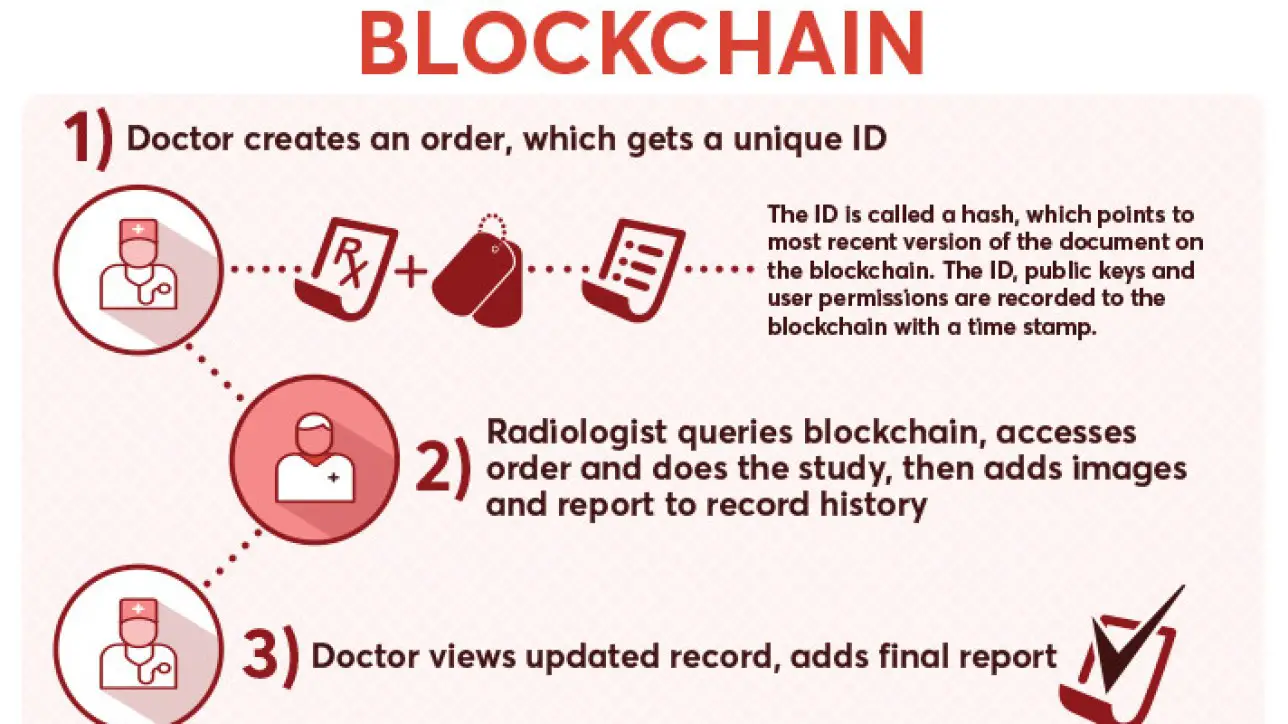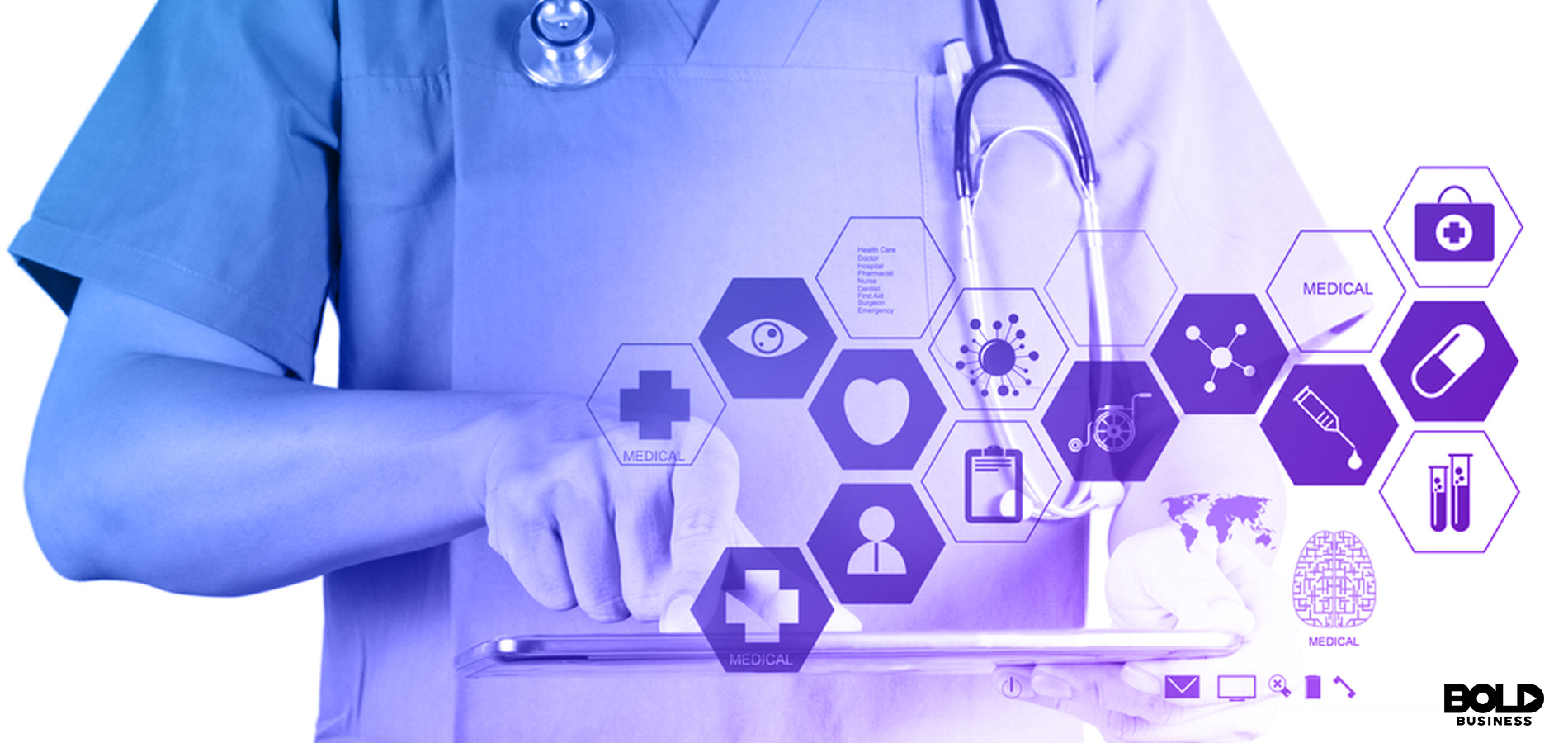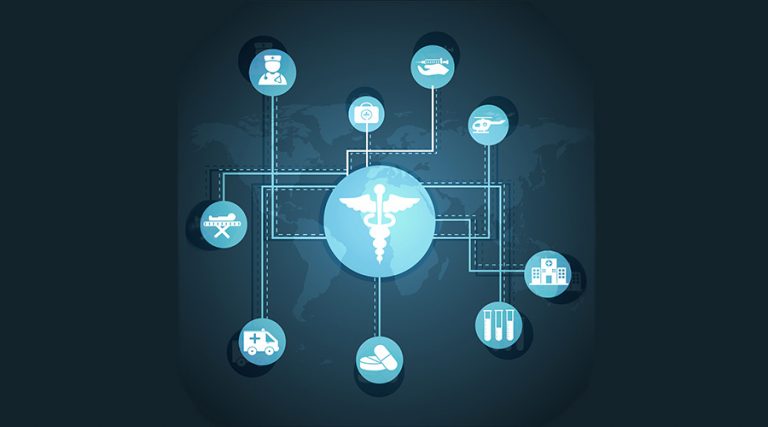Blockchain in Healthcare: Beyond Medical Records

Executive Summary

Blockchain technology has the potential to revolutionize healthcare by enhancing data security, improving communication between healthcare providers, and empowering patients with control over their medical records. This article explores five key applications of blockchain in healthcare beyond managing medical records, demonstrating the broader potential of this transformative technology.

Introduction
Modern healthcare systems face numerous challenges, including data breaches, inefficiencies in communication between healthcare providers, and limited patient access to their medical records. Blockchain technology offers a range of solutions to address these challenges, empowering healthcare professionals and patients alike. This article provides an in-depth analysis of five vital use cases of blockchain in healthcare that extend beyond the traditional realm of medical records management.
Data Security and Privacy
Data security is paramount in healthcare, where patient information is highly sensitive. Blockchain’s decentralized and encrypted nature offers robust security against unauthorized access and data breaches.
- Immutable and tamper-proof: Medical records stored on a blockchain cannot be altered or deleted, ensuring data integrity.
- Decentralized: Data is not stored in a single central location, reducing the risk of unauthorized access.
- Transparency and traceability: Blockchain provides a transparent audit trail, enabling stakeholders to trace data access and changes.
- Patient control: Patients can grant or revoke access to their medical records, empowering them with greater control over their privacy.
Interoperability and Data Sharing
Healthcare providers often struggle to communicate and share patient data effectively. Blockchain can foster seamless interoperability and data sharing among healthcare institutions.
- Interoperability standards: Blockchain platforms can establish data standards that enable seamless data exchange between different systems.
- Improved coordination: Blockchain facilitates secure and real-time data sharing between healthcare providers, enhancing patient care coordination.
- Reduced silos: Data is no longer locked in separate systems, eliminating silos and improving data accessibility.
- Improved efficiency: Healthcare providers can access patient records from various sources, expediting decision-making and reducing administrative burdens.
Patient Empowerment and Engagement
Patients often lack control over their medical records and have limited access to healthcare data. Blockchain can empower patients and foster their engagement in healthcare management.
- Patient-owned data: Blockchain allows patients to securely store and control their medical records, reducing dependence on healthcare providers.
- Personalized care: Patients can share their data with healthcare providers to enable personalized treatment plans.
- Health data sharing: Patients can authorize researchers and organizations to access their anonymized health data, contributing to medical advancements.
- Improved adherence: Patients can track their health data and receive personalized reminders, improving adherence to treatment plans.
Supply Chain Management and Drug Traceability
Blockchain can enhance the efficiency and transparency of healthcare supply chains. It enables the tracking of goods and drugs from production to distribution, ensuring quality and minimizing counterfeiting.
- Provenance and traceability: Blockchain records the journey of products from origin to distribution points, ensuring transparency.
- Anti-counterfeiting: Blockchain-based systems can verify the authenticity of pharmaceuticals, reducing the risk of counterfeit drugs.
- Temperature monitoring: Sensors can be integrated with blockchain to track and record the temperature of sensitive products during transportation.
- Reduced fraud: Blockchain eliminates manual processes and provides auditable records, reducing the potential for fraud and unauthorized transactions.
Clinical Research and Personalized Medicine
Blockchain can accelerate clinical research and support the development of personalized medicine. It facilitates data sharing among researchers and streamlines the recruitment process.
- Data sharing for research: Blockchain enables researchers to securely share sensitive data for clinical trials and medical advancements.
- Patient recruitment: Blockchain-based systems can streamline patient recruitment for clinical trials, matching eligible patients with research programs.
- Precision medicine: Blockchain records patient-specific data that can be analyzed to develop tailored treatments based on genetic and lifestyle factors.
- Biomedical data storage: Blockchain provides a secure and decentralized platform for storing and managing biomedical data.
Conclusion
Blockchain has the potential to revolutionize healthcare by addressing a wide range of challenges. Its applications extend far beyond securely managing medical records. From ensuring data privacy and improving interoperability to empowering patients and enhancing clinical research, blockchain offers a transformative approach to healthcare delivery. By leveraging the decentralized, transparent, and immutable nature of blockchain technology, healthcare systems can unlock new possibilities, leading to improved efficiency, enhanced patient care, and groundbreaking medical advancements.
Keyword Phrase Tags
- Blockchain in Healthcare
- Data Security and Privacy
- Interoperability and Data Sharing
- Patient Empowerment and Engagement
- Clinical Research and Personalized Medicine

Blockchain is indeed a game-changer for healthcare. The enhanced security and transparency it offers are crucial for safeguarding sensitive patient data. Kudos to the author for highlighting its potential beyond medical records!
While the concept is exciting, I’m skeptical about the scalability and interoperability challenges. Implementing blockchain in large-scale healthcare systems seems like a daunting task.
The article concisely summarizes the benefits of blockchain in healthcare. However, it could have provided more specific examples of how it’s being used in practice, such as in clinical trials or remote patient monitoring.
I agree with the potential of blockchain, but the author overlooks the regulatory hurdles that need to be overcome. Healthcare is highly regulated, and ensuring compliance with data privacy laws is no easy feat.
Blockchain in healthcare: the future of medical records…or just a buzzword? Let’s hope it doesn’t become another overhyped technology that fails to deliver on its promises.
Oh, blockchain, the magical cure-all for healthcare! Sorry, but I’ll believe it when I see widespread adoption and tangible benefits for patients.
Imagine your doctor’s office using blockchain to store your medical records. It’s like having a super-secure kitty cat guarding your health data!
This article gives me hope for the future of healthcare. Blockchain has the potential to empower patients and revolutionize the way we access and share our medical information.
While blockchain sounds promising, it’s important to proceed with caution. Implementing new technologies in healthcare requires careful consideration and rigorous testing to ensure patient safety and data integrity.